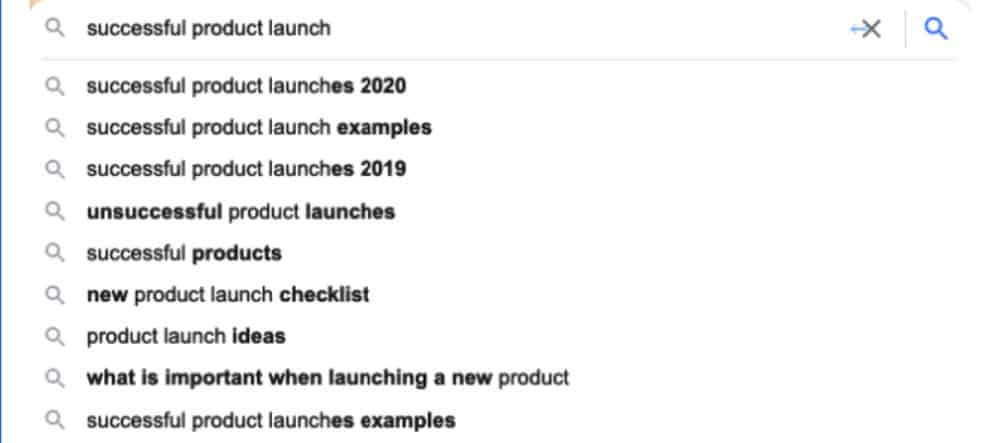Most beginners have a doubt: “Did I do perfect keyword research?” After reading this blog, you will be confident while doing keyword research for blog posts.
By conducting keyword research, you are able to come up with better content ideas and understand the amount of traffic you can expect.
Here I come to the point “How do you do keyword research for a blog post?”.
Many people do keyword research directly from the tools, searching for search terms with less competition and high search volumes.
Do you think it is enough to write a blog that will rank on the first page? In my opinion, no, because every keyword research needs in-depth research before concluding to final keyword research.
Let’s break down keyword research for blog posts into easy steps:
- Seed keywords
- Consider the impact of keyword intent
- Type your seed keyword into Google
- Type your seed keyword into Ahrefs, SEMrush
- Research semantic/related keywords
- Finalize keywords by measuring search volume and keyword difficulty
1. Seed keywords:
Seed keywords mean; your main primary keywords or you can say your main key phrase for which you are going to write your whole blog.
Let’s take the following case as an example:
Topic: how to do a successful product launch 2021.
So, first, do some research to find the seed keyword for a topic. Consider picking a keyword that is most relevant to the topic, and having a good search volume with less keyword difficulty.
In our case, I found the following seed keyword:
| Keywords | Volume | Difficulty |
| successful product launch | 100 | 17 |
2. Consider the impact of keyword intent
A keyword intent tells the purpose of a user’s search for specific queries. Hence, it is crucial to understand user intent in order to better understand user needs and how they are searching for them.
Furthermore, you should consider the stage of the buyer’s journey when users encounter your blog. The buyer’s journey consists of four stages: awareness, interest, consideration, and conversion.

Here, the buyer’s journey is Informational (Awareness). Why?
Because people will search “successful product launch” with the intent of getting the below-mentioned information:
- how to bring a product to market- what makes a product successful- successful product launches examples
- product launch process
- product launch steps
- product launch checklist
So, in our case, people will search for information, and you must provide the information they are looking for.
The buyer’s journey for your post may differ, so understand your buyer’s journey and come up with valuable insight.. This will help you decide what must be included in your blog post.
3. Type your seed keyword into Google
Google suggestions shouldn’t be ignored, ever!
As you searched on Google, you saw suggestions similar to what you searched for, which means Google knows what people search for with the same terms most often.
Hence, it is vital to look at interesting phrase variations for your seed keyword.
I find people are also looking for product ideas, checklists, examples, etc. Listed below are some search terms:
- successful product launches 2020- successful product launch examples- successful product launches 2019
- unsuccessful product launches
successful products
new product launch checklist
product launch ideas
what is important when launching a new product
successful product launches examples

Check out these variations to see if they can fit in your blogs or give you a better understanding of blog content.
4. Type your seed keyword into Ahrefs, SEMrush
Our keyword research isn’t done yet! It still requires a little more research.
Use Ahrefs, SEMrush, and other keyword research tools to find some long-tail keywords based on your primary keywords.
Why is this necessary? Because a blog can rank for multiple keywords, it is best practice to use primary and secondary keywords in your blog.
Here is what I found: listed below are some keywords I have uncovered using SEMrush & Ahrefs.
| Keywords | Volume | Difficulty |
| product leadership: how top product managers launch awesome products and build successful teams | 250 | 5 |
| introducing a new product into the market | 200 | 18 |
| how to launch a product online | 200 | 22 |
5. Research semantic/related keywords
There is one more way to find semantic/related keywords. You can use Google’s automated suggestions. Perform a Google search with your seed keywords to find some interesting semantic queries in the People Also Ask section, as well as the Related Searches section at the bottom of the page.
For our case, I found out the following semantic keywords:
- product launch ideas
- successful product launch examples
- successful product launch strategies
successful product launch case study
6. Finalize keywords by measuring search volume and keyword difficulty
In the above steps, you have accumulated lots of keywords, so now you must choose the secondary keywords for your blog.
All you have to do is measure search volume and keyword difficulty for all variations of your seed keywords.
You should choose keywords with higher relevancy, a higher search volume, and low keyword difficulty.
For example- Here, I have finalized the below-mentioned secondary keywords:
| Secondary Keywords | Volume | Difficulty |
| new product launch process | 200 | 14 |
| new product launch checklist | 350 | 18 |
| introducing a new product into the market | 200 | 18 |
You can see, I have chosen the most relevant keywords with a good amount of search volume and low keyword difficulty.
You deserve congratulations! Now you know how to do perfect keyword research for your blog.
You might be asking yourself, “How many keywords should a blog have? “.
By default, a blog ranks for many related keywords. So it is best practice to focus on 1 primary and 2-3 secondary keywords in a blog. Also, make sure to optimize your blog with primary and secondary keywords for higher rankings.
Takeaway thoughts:
When you conduct the right keyword research for a blog post, it will help your blog rank naturally, and with the help of SEO tactics, you can achieve top rankings for your blog keywords.
Would you like any help with it? As a Remote SEO Expert, I can do keyword research as well as overall SEO activities for you. Let’s talk!
I would appreciate it if you shared this post or left a comment. Each new thought is valuable to me.
Cheers!







